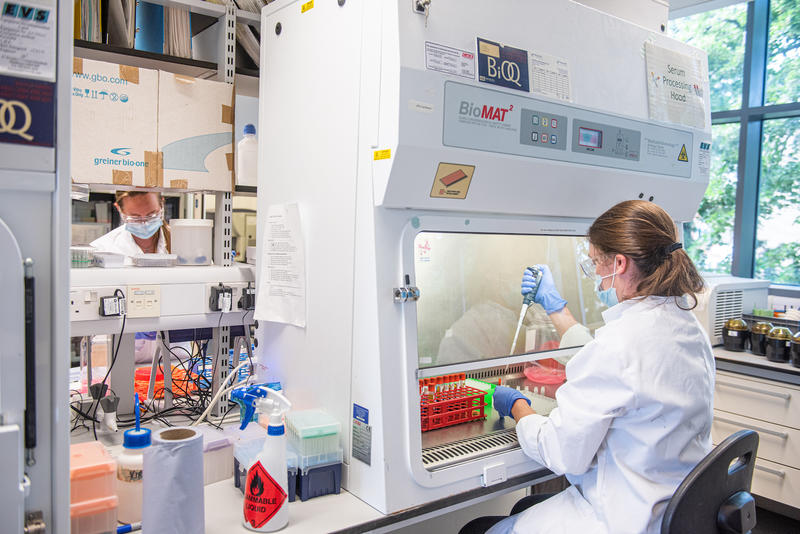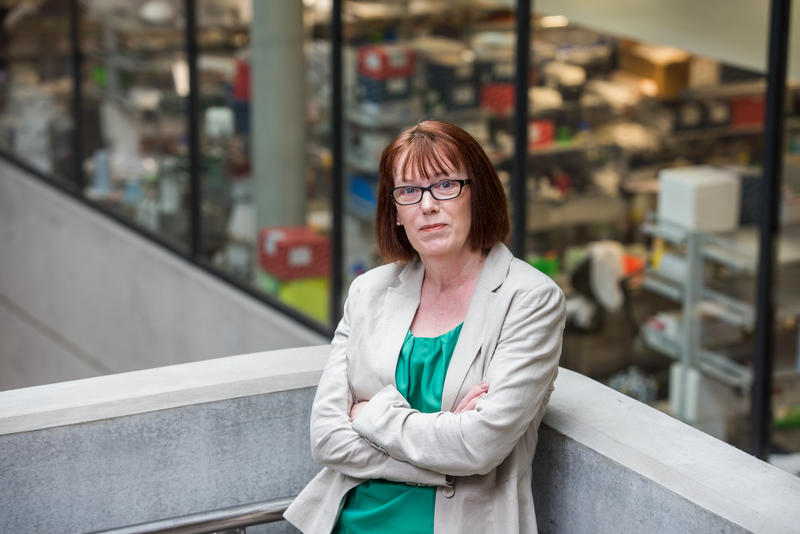OXFORD CORONAVIRUS VACCINE PRODUCES STRONG IMMUNE RESPONSE

OXFORD CORONAVIRUS VACCINE PRODUCES STRONG IMMUNE RESPONSE
Phase 1/2 results are now out
Published: 20 July 2020
Share this article
A team of scientists at Oxford University’s Jenner Institute and Oxford Vaccine Group has taken the next step towards the discovery of a safe, effective and accessible vaccine against coronavirus.
The results of the Phase I/II trial published today in the scientific journal, The Lancet, indicate no early safety concerns and induces strong immune responses in both parts of the immune system.
The vaccine provoked a T cell response within 14 days of vaccination (white blood cells that can attack cells infected with the SARS-CoV-2 virus), and an antibody response within 28 days (antibodies are able to neutralise the virus so that it cannot infect cells when initially contracted).
During the study participants who received the vaccine had detectable neutralising antibodies, which have been suggested by researchers as important for protection, and these responses were strongest after a booster dose, with 100% of participants blood having neutralising activity against the coronavirus. The next step in studying the vaccine is to confirm that it can effectively protect against SARS-CoV-2 infection.
“The Phase I/II data for our coronavirus vaccine shows that the vaccine did not lead to any unexpected reactions and had a similar safety profile to previous vaccines of this type. The immune responses observed following vaccination are in line with what previous animal studies have shown are associated with protection against the SARS-CoV-2 virus, although we must continue with our rigorous clinical trial programme to confirm this in humans,” says Professor Andrew Pollard, Chief investigator of the Oxford Vaccine Trial at Oxford University and co-author of the study.
“We saw the strongest immune response in the 10 participants who received two doses of the vaccine, indicating that this might be a good strategy for vaccination,”
A UK Phase I/II trial began in April testing the Oxford coronavirus vaccine ChAdOx1 nCoV-19. The team started working to develop a vaccine against the global threat that is coronavirus in January 2020 and have been working with unprecedented urgency in a race against the coronavirus.

Sarah Gilbert, University of Oxford
Credit: John Cairns
During the Phase I/II trial the vaccine has been evaluated in more than 1,000 healthy adult volunteers aged between 18 and 55 years in a randomised controlled trial. A subset of these volunteers (10 people) received two doses of the vaccine. Between April 23, 2020 and May 21, 2020, 1077 volunteers, received the vaccine ChAdOx1 nCoV-19 or a placebo MenACWY vaccine. There were no serious adverse health events related to ChAdOx1 nCoV-19.
“These encouraging results support further evaluation of this candidate vaccine in our ongoing large scale Phase III programme, that is still needed to assess the ability of the vaccine to protect people from COVID-19,” says Professor Sarah Gilbert, Professor of Vaccinology, at the University of Oxford Jenner Institute and co-author of the study.

Adrian Hill, University of Oxford
Credit: John Cairns
The University of Oxford is working with the UK-based global biopharmaceutical company AstraZeneca for the further development, large-scale manufacture and potential distribution of the Covid-19 vaccine, with plans for clinical development and production of the Oxford vaccine progressing globally. The project has been further spurred by £84 million of Government funding to help accelerate the vaccine’s development.
“We are encouraged by the Phase I/II interim data showing AZD1222 was capable of generating a rapid antibody and T-cell response against SARS-CoV-2. While there is more work to be done, today’s data increases our confidence that the vaccine will work and allows us to continue our plans to manufacture the vaccine at scale for broad and equitable access around the world,” says Mene Pangalos, Executive Vice President of BioPharmaceuticals Research and Development at AstraZeneca.
Oxford and AstraZeneca are collaborating with clinical partners around the world as part of a global clinical programme to trial the Oxford vaccine. The global programme is made up of a Phase III trial in the US enrolling 30,000 patients, a paediatric study, as well as Phase III trials in low-to-middle income countries including Brazil and South Africa which are already underway.

Andrew Pollard, University of Oxford
Credit: John Cairns
AstraZeneca remain committed to fulfilling their commitment for broad and equitable access to the vaccine, should late-stage clinical trials prove successful. So far, commitments to supply more than 2 billion doses of the vaccine have been agreed with the UK, US, Europe’s Inclusive Vaccines Alliance (IVA), the Coalition for Epidemic Preparedness (CEPI), Gavi the Vaccine Alliance and Serum Institute of India.
Business Secretary Alok Sharma said: “Today’s results are extremely encouraging, taking us one step closer to finding a successful vaccine to protect millions in the UK and across the world. Backed by £84 million Government investment for the vaccine’s development and manufacture, the agility and speed with which the University of Oxford have been working is outstanding. I am very proud of what they have achieved so far.”
Kate Bingham, Chair of the UK's Vaccine Taskforce said: “The UK is fortunate to have such outstanding academic innovators working alongside the highly experienced global team at AstraZeneca. This partnership is working at exceptional speed to demonstrate the safety and clinical effectiveness of the chadox vaccine in protecting people against COVID-19 infection.”
The study, titled "Safety and immunogenicity of the ChAdOx1 nCoV-19 vaccine against SARS-CoV-2: a Phase I/2 randomized control trial" is published in the journal The Lancet, DOI number 10.1016/S0140-6736(20)31604-4
Further references:
Funding
This work has been funded by UKRI, CEPI, NIHR, NIHR Oxford Biomedical Research Centre, Thames Valley and South Midland's NIHR Clinical Research Network and the German Center for Infection Research (DZIF), Partner site Gießen-Marburg-Langen.
About the Oxford COVID-19 vaccine
ChAdOx1 nCoV-19, now known as AZD1222 co-invented by University of Oxford and its spin-out company, Vaccitech is being trialled by the University’s Jenner Institute and Oxford Vaccine Group. The team started working to develop a vaccine against coronavirus in January 2020.
Developed at the Jenner Institute, ChAdOx1 nCoV-19 uses a viral vector based on a weakened version of the common cold virus (adenovirus) containing the genetic material of SARS-CoV-2 spike protein. After vaccination, the surface spike protein is produced, which primes the immune system to attack COVID-19 if it later infects the body. The recombinant adenovirus vector (ChAdOx1 nCoV-19) was chosen to generate a strong immune response from a single dose and it is not replicating, so cannot cause an ongoing infection in the vaccinated individual. Vaccines made from the ChAdOx1 nCoV-19 virus have been given to more than 4,000 people to date and have been shown to be safe and well tolerated, although they can cause temporary side effects, such as a temperature, flu-like symptoms, headache or sore arm.
The potential vaccine entered Phase III clinical trials in May to study safety and efficacy in healthy volunteers aged 18 to 55 years, across 19 trial sites in the UK. The University of Oxford is also working with research partners at a number of clinical trial sites around the world as part of this late stage trial.
Further information about the vaccine trial can be found at: https://covid19vaccinetrial.co.uk/home / www.ox.ac.uk/covid-vaccine















